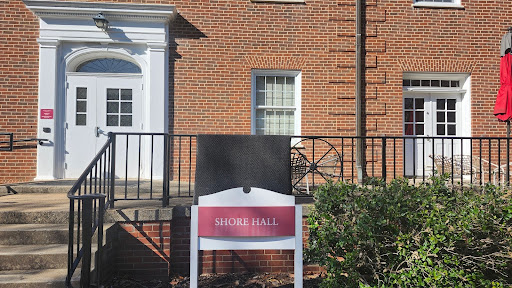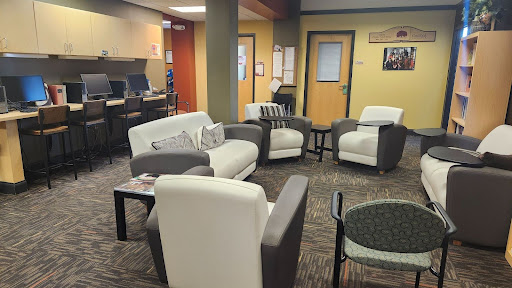“Forward together, not one step back,” shouted the thousands of angry protesters outside of Raleigh’s General Assembly Building.
Over the summer, the Forward Together Movement, organized and led by Rev. Dr. William Barber II, protested the legislation passed by the Republican-swayed N.C. General Assembly.
The series of protests, called Moral Monday, brought people together in front of the legislative building to show their dissatisfaction with the bills.
Greensboro joined the fight on Aug. 28, sparking participation from almost 2,000 locals.
And the fight is not over yet. The movement continues to sweep across the state, with people gathering all over in hopes of bringing about change.
“It’s a reaction to the overreach of the Republican-controlled North Carolina legislature,” said Visiting Assistant Professor of Political Science Robert Duncan. “They’re undermining a lot of the headway that’s been made by minorities, the poor and women. It’s a way to turn back the clock.”
The people supporting the cause are of all different races, ages and ethnicities.
“Legislators in Raleigh don’t want to see multi-racial coalitions and other groups banding together,” said Joe Gamm of the News & Record.
While the protests stand united against the legislation, there are many different issues being raised.
“I don’t know where to start,” said Tim Leisman ‘13, who attended the Asheville protests. “It’s such a wide scope; so many policies and so much action. A lot of people consider them very extreme and very harmful to the condition of poor and working-class people, especially people of color.”
Women’s rights, taxes, education, healthcare and environmentalism are just some of the causes. One major legislative act that sparked protest concerned voting rights for college students.
“They restricted voters’ rights by making it so you have to have an in-state voter’s ID,” said first-year Davia Young, who attended the Raleigh protests. “That disqualifies everyone who goes to college out of state. Not all Guilford students are from North Carolina, so they wouldn’t be able to vote.”
If passed, this legislation would affect the voting rights of half the Guilford population.
The protests began in Raleigh, but have spread throughout the state in an effort to sway vacationing legislators. Many more districts and cities organized Moral Mondays and took to the streets — among them, the streets of Greensboro.
“The first Moral Monday was a rather small affair compared to what it turned into,” wrote Tanya Glover for the online editorial collection Truth-Out. “That first week bolstered the people of North Carolina, and in the weeks that followed, more and more people stepped up to be arrested, or ‘bear witness’ for justice.”
When the movement hit Asheville, a new division called Mountain Moral Monday began. For many, this was the highlight of the movement, as over 10,000 people showed their support.
“There was so much excitement, so much energy, so many people,” said Leisman.
“Ultimately the end goal is to get people to vote and to vote against policies that hurt lower-income and working-class people.”
Like Leisman, Duncan hopes that change will start in the poll booths.
“Hopefully in the next N.C. election, we’ll have candidates who truly represent the people, not just the wealthy,” he said.
While there have not been any organized protests since August, the movement is anything but silent.
“With growing attention on the protests, which themselves are expanding, organizers have repeatedly stated that their acts of resistance won’t cease any time soon,” wrote Eric Ginsburg for YES! Weekly.
Forward together, the protesters shouted. Not one step back.
[photomosaic nggid=152]












Vicki Ryder • Sep 20, 2013 at 9:27 pm
I read, and then I re-read, the recent article by staff writer Olivia Neal titled “Moral Monday: No More Mischief,” and I have yet to figure out just what “mischief” she was referring to.
Surely it can’t refer to the actions of the thousands of North Carolinians who have been protesting the regressive legislation that has been spewing from our State House in recent months. When concerned citizens care enough about the future of their State to exercise their Constitutional right to protest, that can hardly be swept aside as mere “mischief.”
When, following in the tradition of the Civil Rights Movement of the ‘60s, more than 900 of our fellow citizens were willing to commit civil disobedience and be arrested for bringing their legitimate grievances to their elected representatives, that cannot be trivialized as “mischief,“ either.
So, perhaps the headline was referring to the actions of the State Legislators who, having gained their seats through illegal redistricting, have done irreparable damage to our State by limiting students’ and others’ access to the ballot box; by increasing college costs; by cutting unemployment benefits, affordable health care, public school funding, and women’s access to reproductive health services; by cutting taxes for the rich while increasing them for the poor; by repealing the Racial Justice Act, and by lifting regulations on environmental protections.
Once you start feelings the effects of their racist and regressive laws, I think you’ll agree that “mischief” doesn’t BEGIN to describe what they have done.
Get involved, students! This is about you and your future. A good start would be to make sure that you’re registered to vote and that you’re informed about the issues. Then VOTE like your life depends on it, because – this time – it really does!
One more thing: Ms. Neal is incorrect in stating that there haven’t been any organized protests since August. The protests have continued every single week, but rather than being centered in Raleigh, they have been moving around the State (including Greensboro). You can find out more by contacting the North Carolina NAACP at http://www.naacpnc.org